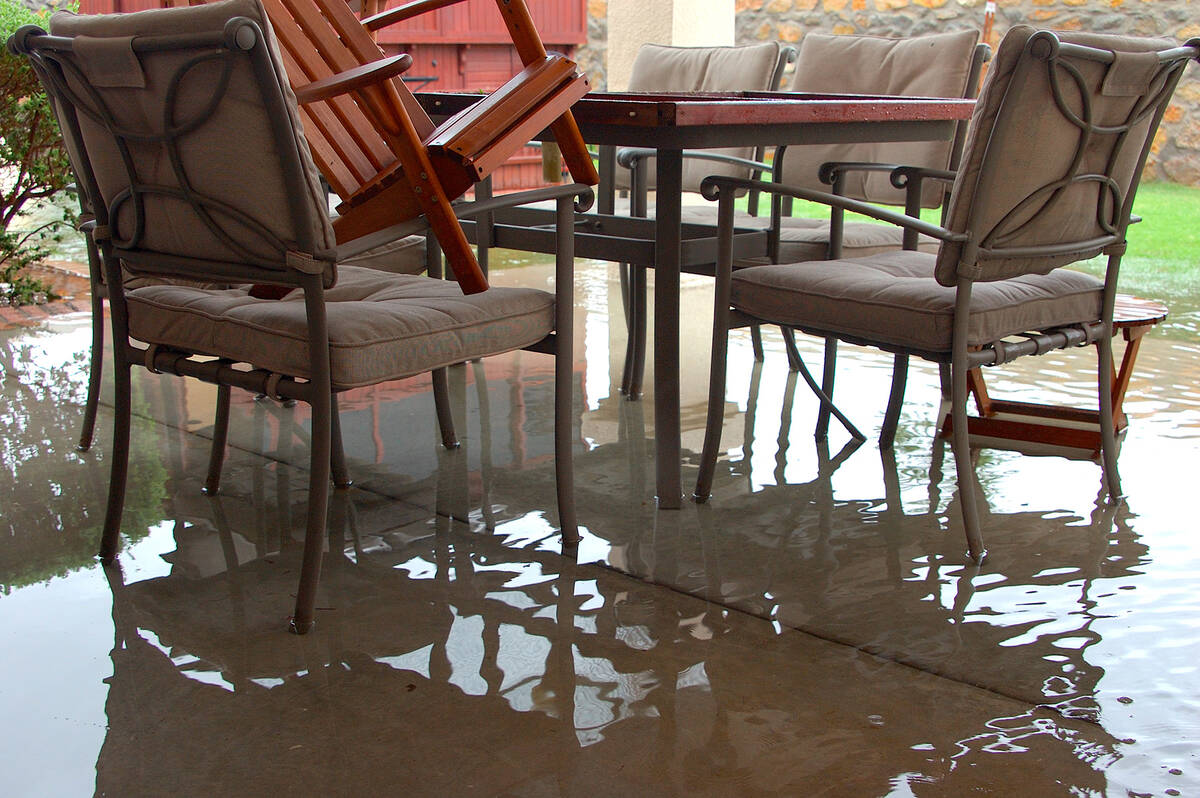
With Nevada being the driest state in the country, we’ve certainly seen some wet and wild weather these past weeks. Heavy rains and gusting winds have caused myriad floods and road closings. Based on current forecasts, it looks like more thunderstorms are headed our way.
Hooray for how it will help our “D4-exceptional drought” conditions, the most severe classification. But for homeowners who have experienced water and wind damage, these rains may put a wet blanket on their celebration. Some residents of late are experiencing leaks through the roof to the ceiling and through windows from driving rain. Rarer are incidents of water rising from street level into the home.
Now is a good time to review your homeowner insurance to verify exactly what is covered in your policy.
Doug Scheppmann, an agent at our local State Farm explains, “Heavy rains may cause damage to your home, which typically are covered under your existing home insurance. It always depends on how the damage occurred. If the damage was caused by rising ground water however, you would need flood insurance, which is a separate policy issued through the National Flood Insurance Program. Always call your local agent if you have any questions concerning damage to your home.”
We haven’t experienced a monsoon season like this in years. The total precipitation for greater Las Vegas in 2021 was only 1.86 inches, well below the norm of 4.18 inches. Meanwhile, according to Accuweather.com, last week alone, rainfall across the greater Las Vegas metro ranged up to .75 inches in one day.
Downpours like these will quickly reveal problem areas. My home had a leak through the bathroom exhaust that vents through the roof. Our neighbor had water rise up and enter the doorway of her garage. The drain of an exterior stairwell to a local business clogged and sent water rising several inches and into the basement.
Living in the desert we don’t spend much time thinking about water mitigation or waterproofing. There are several things a person can do to avoid water damage before a storm hits. Here are steps you can take to help prevent or lessen damage before and after heavy rains.
Preventive maintenance
Sealant: Age, sun and heat degrade seals around doors, windows and vents, especially in our hot and dry climate. Check the exterior caulking/sealant around doors and window for breaches where rain can get through. Also check for proper seals around exhaust vents. (The flange for my exhaust fan needed resealing, causing my bathroom leak.) Be sure to use a sealant formulated for exterior use.
Clean yard/landscape drains and pipes: Remove the catch basin cover and remove the debris. Flush the system. Underground pipes can be cleaned using several methods such as snaking (rootering) and hydro-jetting. Systems that are densely clogged will require a professional drain cleaning service.
Clean gutters: Especially with all the winds we’ve been having, remove debris from your gutters and flush them. Fill any holes that may have developed with gutter sealant.
Get sandbags: If you know there’s a vulnerable area prone to collecting water, create a barrier or reroute the water with sandbags. Properly filled and placed, sandbags can create a barrier that will divert moving water away from or around your home. Unlike traditional ones, there are sandbag systems that are activated on contact with water, with a built-in wedge design that keeps barriers in place.
Post-flooding
Water and electricity don’t mix. Turn off the power to any wet areas, however if that means entering a wet area to do so, don’t. Call an electrician.
Once it’s safe, water damage restoration should start as soon as possible. Have a wet and dry shop vac ready to remove water; be sure to remove the filter that’s only used for dry vacuuming. Run a fan and dehumidifier to ventilate and hasten the drying process, avoiding potential mold growth. Wipe down surfaces with a disinfectant. Remove any soaked items and place them outside in sunlight.
Norma Vally is a seasoned veteran of home improvement; her career includes four seasons as host of Discovery Home Channel’s Emmy-nominated series “Toolbelt Diva.” A columnist and author, Vally splits her time in Southern Nevada, Los Angeles and New York City. Follow her on Facebook at Norma Vally “Toolbelt Diva” and visit her at www.NormaVally.com. Email Norma@NormaVally.com.